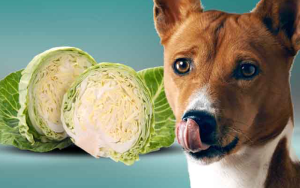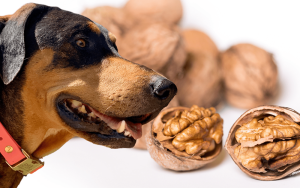Can Dogs Eat Beans? A Guide to Feeding Beans to Your Dog Safely

As a dog owner, you might be curious about whether certain foods, like beans, are safe for your pet. Beans are a common staple in many human diets due to their high nutritional value, but can dogs eat beans? The answer
is yes, but there are important things to know before sharing beans with your furry friend.
In this article, we’ll explore the types of beans that are safe for dogs, the health benefits, potential risks, and how to prepare beans properly to ensure your dog’s safety.
Are Beans Safe for Dogs?
In general, beans are safe for dogs when served in moderation and prepared correctly. Beans are a good source of protein, fiber, and essential nutrients like iron and vitamins. However, not all beans are suitable for dogs, and there are
some important precautions to consider before offering them to your pet.
Some beans can cause gastrointestinal upset or be harmful if prepared improperly, so it’s essential to be mindful of the type of beans, how they’re cooked, and the portion sizes.
Types of Beans That Are Safe for Dogs
Several types of beans are safe for dogs to eat in moderation. These include:
-
Green Beans: These are one of the best options for dogs. They’re low in calories and high in fiber, making them a great choice for dogs that need to lose weight or maintain a healthy weight. Green beans also provide vitamins A,
C, and K, which support your dog’s immune system and overall health. -
Kidney Beans: Cooked kidney beans can be a good source of protein and fiber for dogs. They also contain important minerals like iron, calcium, and magnesium. However, kidney beans should never be fed raw, as raw kidney beans contain
a toxin called phytohemagglutinin, which is harmful to dogs and humans. -
Black Beans: Black beans are rich in fiber and protein, making them a good choice for dogs. They also contain antioxidants and essential vitamins like folate. Like kidney beans, black beans should always be fully cooked and served
in moderation. -
Lima Beans: Lima beans are another safe option for dogs when cooked. They are high in fiber and provide beneficial nutrients like potassium and magnesium. As with other beans, they should be served in small amounts and without
seasoning. -
Chickpeas: Chickpeas, also known as garbanzo beans, are safe for dogs in moderation. They are high in protein, fiber, and various vitamins and minerals, including folate and iron. However, they can be high in carbohydrates, so
they should be fed sparingly.
Health Benefits of Beans for Dogs
When prepared properly, beans can offer several health benefits for your dog:
-
High in Protein: Beans are a great source of plant-based protein, which helps in muscle repair, immune function, and overall body maintenance. Protein is essential for your dog’s growth and development, especially in puppies and
active dogs. -
Rich in Fiber: The fiber in beans supports healthy digestion by promoting regular bowel movements and preventing constipation. Fiber also helps regulate blood sugar levels, which can be beneficial for dogs with diabetes or weight
management concerns. -
Low in Fat: Most beans are low in fat, making them a healthy alternative to higher-fat treats or meats. Low-fat foods are particularly important for dogs prone to obesity or pancreatitis.
-
Packed with Nutrients: Beans contain important vitamins and minerals like iron, folate, and potassium, which support your dog’s immune system, cardiovascular health, and muscle function.
Risks of Feeding Beans to Dogs
While beans can be a healthy addition to your dog’s diet, there are some risks and considerations:
-
Gastrointestinal Upset: Beans are high in fiber and can cause digestive issues if fed in large amounts or if your dog is not used to them. Too many beans can lead to bloating, gas, or diarrhea. Introduce beans gradually to see
how your dog reacts. -
Toxins in Raw Beans: Certain beans, such as kidney beans, contain toxins (like phytohemagglutinin) in their raw form, which can be harmful to both humans and dogs. Always cook beans thoroughly before feeding them
to your dog. Do not feed raw beans, especially kidney beans, under any circumstances. -
Excessive Salt: Canned beans can be high in sodium, which is unhealthy for dogs. Always check the label to ensure that the beans are unsalted, or better yet, cook fresh beans yourself to avoid added salt.
-
Choking Hazard: Larger beans, such as whole chickpeas or kidney beans, can pose a choking hazard for smaller dogs or dogs that tend to gulp their food quickly. Always chop beans into small pieces or mash them before serving.
-
Allergic Reactions: While rare, some dogs may be allergic to beans. Symptoms of a bean allergy can include itching, swelling, vomiting, or diarrhea. If you notice any signs of an allergic reaction after feeding your dog beans,
discontinue use and consult your vet.
How to Safely Prepare Beans for Your Dog
If you want to feed your dog beans, it’s important to prepare them correctly to avoid any health risks. Here are a few tips for preparing beans safely:
-
Cook Beans Thoroughly: Never feed raw beans to your dog, especially kidney beans. Raw beans can contain harmful toxins that can cause illness. Always cook beans thoroughly to ensure they are safe to eat.
-
Avoid Seasonings and Additives: Beans should be cooked without any added salt, garlic, onions, or spices. These seasonings can be toxic to dogs and may lead to digestive issues or more severe health problems.
-
Serve in Moderation: Beans are high in fiber and can cause digestive upset if fed in large quantities. Serve beans as a treat or supplement to your dog’s regular food, and ensure that they are part of a balanced diet.
-
Check for Canned Beans: If you use canned beans, always choose varieties that are unsalted and without added preservatives. Rinse the beans thoroughly to remove any excess salt before serving
them to your dog. -
Chop or Mash Beans: To avoid choking hazards, chop or mash beans into smaller pieces, especially if they are large. This is particularly important for smaller dogs or dogs that tend to inhale their food.
How Much Beans Can I Feed My Dog?
The amount of beans you can safely feed your dog depends on their size, weight, and overall health. As a general rule, beans should make up no more than 10% of your dog’s daily diet.
Here’s a basic guideline:
- Small Dogs: Offer 1-2 tablespoons of cooked beans per meal.
- Medium Dogs: Offer 3-4 tablespoons of cooked beans per meal.
- Large Dogs: Offer 1/4 to 1/2 cup of cooked beans per meal.
Remember, beans should be given as a treat or supplement, not as a regular part of your dog’s diet. Always consult your veterinarian before introducing new foods to your dog’s meals, especially if your dog has any underlying health conditions.
Final Thoughts on Feeding Beans to Dogs
So, can dogs eat beans? Yes, beans can be a healthy and nutritious treat for dogs, but they must be prepared properly and fed in moderation. Beans are high in protein, fiber, and essential vitamins, which can support
your dog’s overall health. However, always avoid feeding raw beans, remove any seasonings, and be cautious with canned varieties that may contain high levels of salt.
If you’re introducing beans to your dog’s diet, start with small amounts and monitor for any digestive issues or allergic reactions. If you’re ever uncertain about feeding beans or any other food to your dog, it’s always a good idea to consult with your
veterinarian.
Frequently Asked Questions
1. Can beans cause gas in dogs?Yes, beans are high in fiber and can cause gas or bloating in some dogs. It’s important to introduce beans gradually and monitor your dog for any digestive upset.
2. Are there any beans that are toxic to dogs?Raw kidney beans contain a toxin called phytohemagglutinin, which is harmful to both dogs and humans. Always cook kidney beans thoroughly before feeding them to your dog. Avoid feeding your
dog raw beans.
3. Can dogs eat baked beans?Baked beans are typically cooked with added sugars, salt, and spices, which can be harmful to dogs. It’s best to stick to plain, unsalted beans that are cooked without any seasoning or additives.






